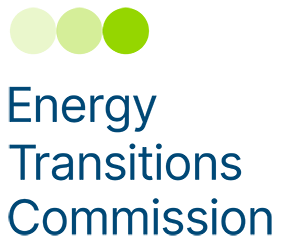The world currently emits more than 46 gigatonnes of greenhouse gas emissions (GHG) every year (and rising), of which nearly 80% comes from the combustion of fossil fuels for energy or industrial processes. Meanwhile, in 2018, the Intergovernmental Panel on Climate Change (IPCC) report on 1.5°C scenarios issued a powerful warning that we should reach net zero GHG emissions by mid-century to limit the dramatic impacts of the rise in global temperatures on our climate, our societies and our economies.
Our ambition


Analysis from the Energy Transitions Commission (ETC) has demonstrated that achieving this goal is technically and economically possible:
- Technically possible because there is no source of GHG emissions for which one or several solutions – already available or in development – have not been identified;
- Economically possible because it will cost less than 0.5% of global GDP by mid-century to run a zero-emissions economy, and investments required over the next three decades to build that new climate economy are only 1% to 1.5% of global GDP.
However, winning the climate race requires immediate, decisive, collective action from policymakers, industry players, financial institutions and civil society organisations.
Our ambition is to inform the decisions of public and private decision makers and support the leaders at the forefront of climate action to speed up the deployment of low and zero-carbon solutions.
We do that by providing them with datapoints and tools on the energy transition as well as convening action-oriented, high-level discussions and nurturing collaborations between leaders from a range of sectors.


Since its creation in 2016, the ETC has strengthened its position as a unique voice in the international climate and energy debate, analytically robust and industry backed, engaging with and influencing policymakers, industry players, financial institutions and civil society stakeholders.
With the support of an expanding membership and network of delivery partners, we have had a major impact on the way the international community thinks about the energy transition, strengthening the case for net-zero targets and putting the decarbonisation of harder-to-abate sectors on the global agenda.
Today, we focus our work on 3 types of programmes:


